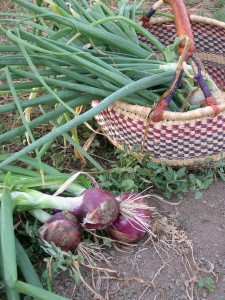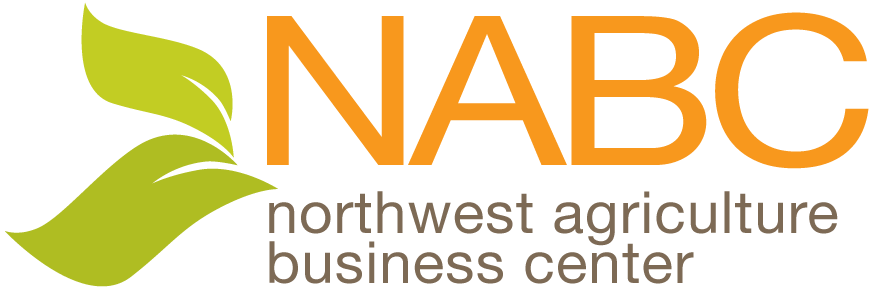CSAs Mean Business
Many people already know the definition of Community Support Agriculture or CSA, but for the rest, let’s just say it is a grassroots partnership between a farmer and individuals that helps reconnect eaters to the source of their food. Before season, a farm will assign monetary value of producing say, 20 weeks worth of food, and then divide this amount into “shares” and charge a flat upfront fee to anyone in a given community who wants to participate. The shareholders (or individuals and families) then receive weekly “shares,” boxes or bags of seasonal produce (and sometimes animal products) grown on that farm or collective of local farms throughout the season. Provided there are no dramatic hiccups in production, everybody wins.
There are many types of CSA operations in Northwest Washington. A compliment to farmers markets and grocery stores, CSAs are responding to consumers desire for food that is local, fresh, delicious, fair, and clean to eat. It also helps establish a rapport between producer and consumer–building community through food.
Several years ago while living in Portland, I was introduced to the concept of “CSAs for restaurants.” Our local Slow Food chapter held a lecture on the subject with Chef John Taboada of Navarre restaurant who purchased shares for his small kitchen in NE Portland from 47th Ave Farm (http://www.47thavefarm.com). His kitchen was rather small but highly creative and the menu flexible. He and his staff were committed to sourcing local and seasonal, not only because of high ideals, but because the food quality was excellent. To this day, Chef Taboada maintains his relationship with 47th Ave Farm through CSA shares because the mutually supportive relationship works for his business- in terms of balancing cost to overall quality his customers seek.
Since Moving to Washington, I have queried restaurants in the Seattle area to find out who here receives CSAs in their kitchens. So far, not one has been identified but I’m sure they are out there. I have found more businesses are offering their locations as drop sites, making it easy for their employees to participate in CSAs. Says PSFN member Clayton Burrows of Growing Washington,
“We don’t deliver CSAs to restaurants, per say, but we certainly are helping to lead the charge with workplace CSAs. We basically utilize businesses and drop-off points for our CSA. We ask that businesses have at least five people sign up for a box, and then we deliver their food to their place of work each week. Some of the businesses pay a portion of the share, some do it through payroll deduction. We also do Business Share Snack Packs, where we deliver snack type items (e.g. berries, cherry tomatoes, pickling cucumbers, salads, grapes, etc.), to businesses each week. Our workplace CSA program is going great.”
There are a variety of CSA farms and local produce box delivery services within the Puget Sound Food Network and can be researched at www.agbizcenter.org. Before choosing, business owners should keep in mind that each producer is unique in terms of certifications, geography, delivery options, products offered, cost and seasonal share availability. They include:
- DEVine Gardens

- The Raven and the Spade
- Sol to Seed Farm
- Whidbey Green Goods
- Willowood Farm on Ebey’s Prairie
- Greenbank Farm
- Growing Washington
- Maha Farm
- Molly’s Island Garden
- Full Circle Farm in Carnation
As a business, you can to decide if a weekly CSA share will work for you, your employees or your restaurant kitchen. But you’ll need to decide quickly! Many CSA farms are gearing up for their first of the season deliveries. In fact, Growing Washington just announced on their Facebook page, “You’ve got less than 48 hours to sign up for our Local Choice Food Box in King and Snohomish Counties and then they are closing down registration for the season.”
For more information about choosing a CSA for your business or restaurant, please login to PSFN and search CSAs in the member profiles, paying attention to the names of the above farms. You can also find an exhaustive directory of CSAs in the Puget Sound Fresh 2010 Farm Guide or online at http://www.pugetsoundfresh.org/csa.htm.
Contributing blogger Lucy Norris is Puget Sound Food Network’s Regional Food Systems Developer. For more information, please see staff bios at http://www.agbizcenter.org/staff/
